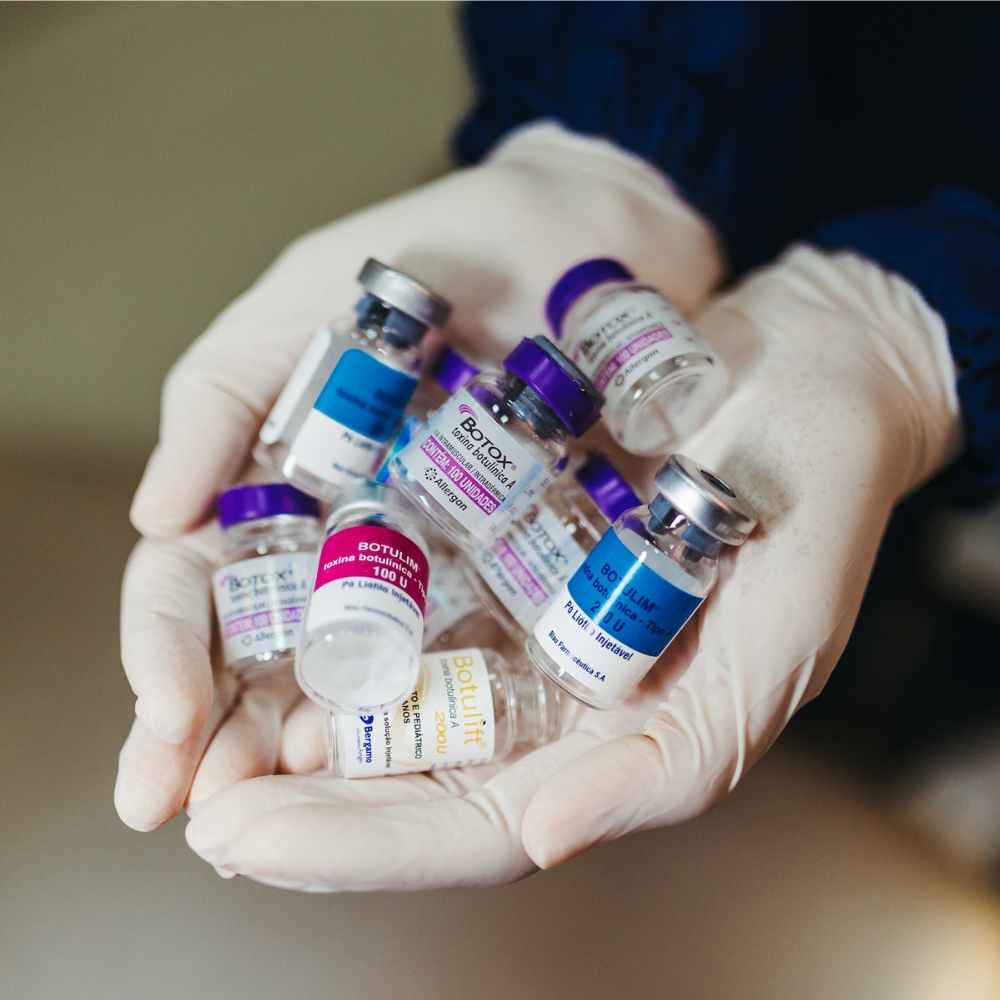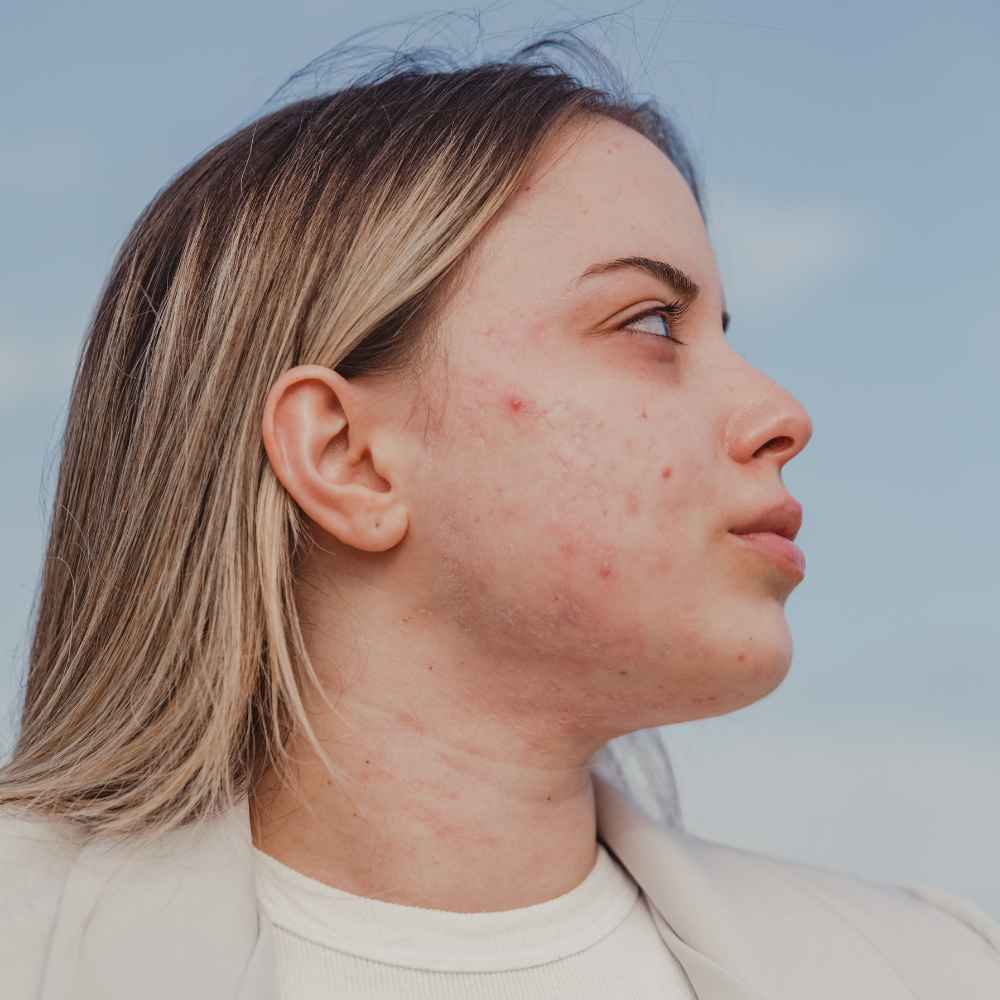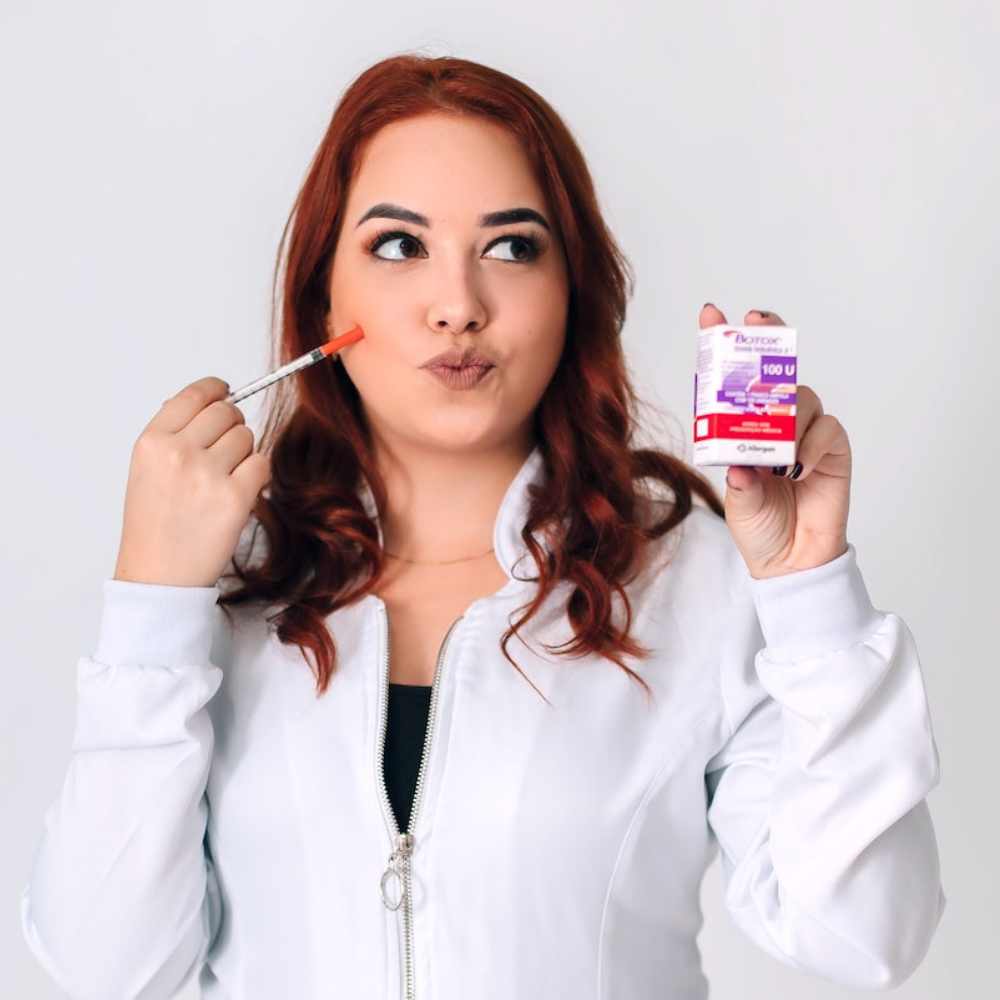
Botox Beyond Wrinkles: Does Botox Help Acne?
Having trouble with embarrassing and persistent acne? Have you tried everything to treat it?
You may have heard a rumor that Botox can do more than just treat lines and wrinkles. This has been a question on the minds of many beauty enthusiasts and skincare experts alike.
While Botox is primarily known for its anti-aging benefits, some people claim that it can also help to improve acne. But is Botox really an acne treatment? Let's dive in and find out.

What is Botox Anyway?
First things first, what is Botox? Botox is a cosmetic treatment that involves injecting a small amount of botulinum toxin into specific facial muscles in order to temporarily relax them.
When you inject Botox, this results in a reduction of wrinkles and fine lines on the face.
Botox has become incredibly popular over the years and is commonly used to treat areas such as the forehead, between the eyebrows and around the eyes.
A similar product with a different brand name, Dysport, does basically the same thing as Botox.
How Does Botox Work?
Botox works by temporarily paralyzing or relaxing muscles in the face or other areas of the body.
When injected in small amounts, it blocks the release of a neurotransmitter called acetylcholine, which is responsible for sending signals from nerves to muscles.
By blocking the release of acetylcholine, Botox prevents the muscles from contracting, causing them to relax. This relaxation of the muscles can help to reduce the appearance of wrinkles and fine lines in the treated area.
Botox is typically injected directly into the muscles that are responsible for causing wrinkles and fine lines, such as the muscles in the forehead, between the eyebrows, and around the eyes.
The injections are administered with a fine needle and usually take only a few minutes to complete.
The effects of Botox typically begin to appear within a few days of treatment and can last for several months, depending on the individual and the area being treated.
Over time, the muscles will gradually regain their ability to contract, and the effects of Botox will wear off.
Botox & Oil Production
Now, when it comes to acne, Botox may seem like an unlikely solution. After all, it's not designed to treat acne or oily skin directly.
However, some people believe that Botox can help to reduce acne breakouts because it can decrease oil production in the sebaceous glands.
This is because a side-effect of Botox is the skin produces less oil in the area where the Botox was injected than it normally would.
Botox is not FDA approved for this particular treatment reason, but many people who get Botox have noticed that clearer skin is a side-effect of the injections.

Does Botox Prevent Acne?
But is there any truth to these claims? Unfortunately, the answer is not exactly.
While Botox may be able to reduce oil production, and also excessive sweating, in the skin and there may be some anecdotal evidence that it causes clearer skin, there is no scientific evidence of this at this time.
Acne is a complex skin condition that is caused by a variety of factors, including excess oil production, hormones, bacteria, and inflammation. Botox only addresses one of these underlying causes.
Therefore, it will not be a viable treatment option for most people with acne. However, some may see improvements in their acne or acne scars after botulinum toxin injections due to a decrease in sebum production.
Dr. Whitney Bowe, a now famous dermatologist on TikTok, acknowledges that Botox can help with clearer skin in this video:
@drwhitneybowe #duet with @chooseyourglow #thatboweglow #dermatologist #acne #botox #texture
♬ original sound - felix greenbriar
Drawbacks of Botox
There are some potential risks associated with using Botox to treat acne outbreaks.
For starters, Botox injections can be quite expensive, and the effects are temporary. This means that you would need to undergo regular treatments in order to maintain any benefits.
Additionally, Botox injections can be painful and may result in side effects such as bruising, swelling, and redness.
So if Botox isn't the answer to frequent acne outbreaks, what is? The truth is that there is no one-size-fits-all solution to acne.
The best way to treat acne will depend on your individual skin type, the severity of your acne, and other factors such as your diet and lifestyle.
How to Prevent Acne
That being said, there are some general tips that can help to improve the appearance of acne prone skin.
First and foremost, it's important to keep your skin clean and well-moisturized. This can help to prevent the buildup of oil and bacteria that can lead to acne.
You should also avoid using harsh, drying products on your skin, as these can strip away your skin's natural oils and exacerbate acne.
In addition to proper skincare, there are some lifestyle changes that can help to reduce acne breakouts.
For example, eating a healthy, balanced diet that is rich in fruits, vegetables, and whole grains can help to promote healthy skin.
You should also try to get plenty of sleep and exercise regularly, as these can help to regulate hormones and reduce stress levels, both of which can contribute to acne.
If you have tried these tips and are still struggling with acne, it may be time to consult a dermatologist.
A dermatologist can help to assess your individual skin type and recommend targeted treatments that are tailored to your needs.
Some common acne treatments include topical creams and gels, oral medications, and in-office procedures such as chemical peels and laser therapy.

Save the Botox for Wrinkles
While booking a Botox appointment may seem like an attractive solution for those struggling with acne, the truth is that it simply does not address most of the underlying causes of the condition.
However, it does slow down oil production in the areas where it is injected.
If you're looking to improve the appearance of acne prone skin, it's important to focus on proper skincare, lifestyle changes, and consulting with a dermatologist if necessary.
While Botox or Dysport may not be the answer to acne, it can still be a valuable tool for those looking to improve the appearance of fine lines and wrinkles.
In fact, many people who have undergone Botox treatments have reported feeling more confident and satisfied with their appearance.
If you are considering Botox, it's important to do your research and find a qualified, experienced practitioner.
You should also be aware of the potential risks and side effects associated with Botox or Dysport injections (or any other cosmetic injections), and weigh the benefits against the costs before making a decision.

















